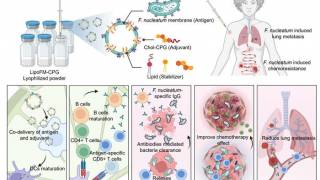New Development Tools Produce Quicker Cancer Immunotherapy

German researchers from DTU Health Technology and Jacobs University published their new research demonstrating advancement in the detection of a certain type of immune cells, called T cells.
This is important since improving T cell detection may have several therapeutic implications.
When applying immunotherapy, an immune response against a tumor takes place, and the tumor-fighting T cells in the blood of the patient multiply.
‘To find out how well the immunotherapy is working, scientists and doctors want to check how many tumor-specific T cells a patient has mounted,’ said these researchers in a press release published on August 9, 2019.
The tumor-specific T cells are identified by their specific T cell receptor using a colored reagent called an MHC tetramer. Using this reagent, the tumor-specific T cells become visible and can be counted under the microscope or in a high-throughput machine called a flow cytometer.
The MHC proteins of the MHC tetramer reagent were previously difficult to produce due to the inherent instability of the MHC protein, and that used to be a bottleneck in research and diagnosis.
"Whenever a researcher needed MHC tetramers, they had to ask a company to make them, and the process took four to six weeks", explained Prof. Sebastian Springer, Jacobs University Bremen.
"Of course, that created big problems if they had a sick patient they wanted to diagnose, or if they were following a really urgent scientific project.”
“The problem was that every MHC protein contains a little piece of a tumor or virus called a peptide, which varies from one patient to the other, and without the peptide, the MHC protein was unstable and perished quickly, even if it was kept in the fridge, thereby destroying the MHC tetramer."
It is the development and use of a super-stable form of the MHC tetramer reagents that professor Sine Reker Hadrup, DTU Health Technology, and her collaborators at the Jacobs University Bremen in Germany, published in Science Immunology on July 19, 2019.
With the new invention, MHC molecules can be loaded with peptides instantly, on-demand.
"The technology opens a range of new possibilities for tracking disease-relevant T cells in patients and to manipulate T cells to specifically fight cancer," said Sine Reker Hadrup.
Furthermore, Hadrup and Springer said in this press release, ‘we believe that the stabilized form of the MHC protein holds great promise within a new field of personalized T cell therapy, termed precision activated cell therapy, where patients own tumor-specific T cells, in a personalized protocol, are isolated and activated before being used as the therapeutic product.’
Professors Hadrup and Springer have now co-founded a new company named Tetramer Shop to produce and sell this MHC tetramer reagent.
Our Trust Standards: Medical Advisory Committee

























